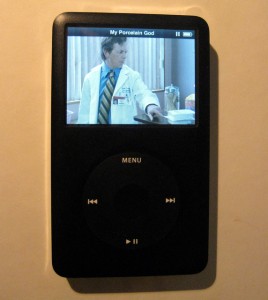Early this week, Representatives Ed Markey and Anna Eshoo introduced the Internet Freedom Preservation Act of 2009. It's common sense and it's fair, but just watch as the telecoms now do everything they can to destroy it. Why do we need this Act? Here are a few recent examples:
The issue of unrestricted Internet access has gained new traction on Capitol Hill in the wake of reports that Apple and AT&T are each blocking or preventing users from accessing services for the mega-popular iPhone, which is exclusive to AT&T at the moment. FCC chairman Julius Genachowski recently sent letters to Apple, AT&T, and Google asking why Google Voice, the company's popular free calling service, was rejected for use on the iPhone.
Representatives Markey and Eshoo
made this statement about the need for this net neutrality bill:
The Internet is a success today because it was open to everyone with an idea,” said Rep. Markey. “That openness and freedom has been at risk since the Supreme Court decision in Brand X. This bill will protect consumers and content providers because it will restore the guarantee that one does not have to ask permission to innovate. The Internet has thrived and revolutionized business and the economy precisely because it started as an open technology,” Rep. Eshoo said. “This bill will ensure that the non-discriminatory framework that allows the Internet to thrive and competition on the Web to flourish is preserved at a time when our economy needs it the most.”
Here's a summary of the bill:
H.R. 3458, the Internet Freedom Preservation Act, is designed to assess and promote Internet freedom for consumers and content providers. The bill states that it is the policy of the United States to protect the right of consumers to access lawful content, run lawful applications, and use lawful services of their choice on the Internet while preserving and promoting the open and interconnected nature of broadband networks, enabling consumers to connect to such networks their choice of lawful devices, as long as such devices do not harm the network. The legislation also directs the Federal Communications Commission (FCC) to promulgate several rules relating to enforcement and implementation of the legislation, including rules to ensure that providers of Internet access service fulfill the duties and disclose meaningful information to consumers about a provider’s Internet access service in clear, uniform, and conspicuous manner.
To do your part,
click on this tool to determine the phone number of your representative, then call to ask for his or her position on this bill. You are then given a further option to report the result to
Free Press/Save the Internet. I made the call and spoke directly with a legislative assistant. She didn't know the answer (re Representative Russ Carnahan), but promised to find out and report back to me. The entire process only took a couple minutes.
You can also sign a Petition that will be delivered to Congress by visiting
Save the Internet. Again, it only takes a minute. Your grass roots investment of a few minutes can counteract tens of millions of dollars the telecoms will spend on lobbyists, misleading media campaigns and wads of cash that the are putting into the palms of your elected representatives. Be empowered!

